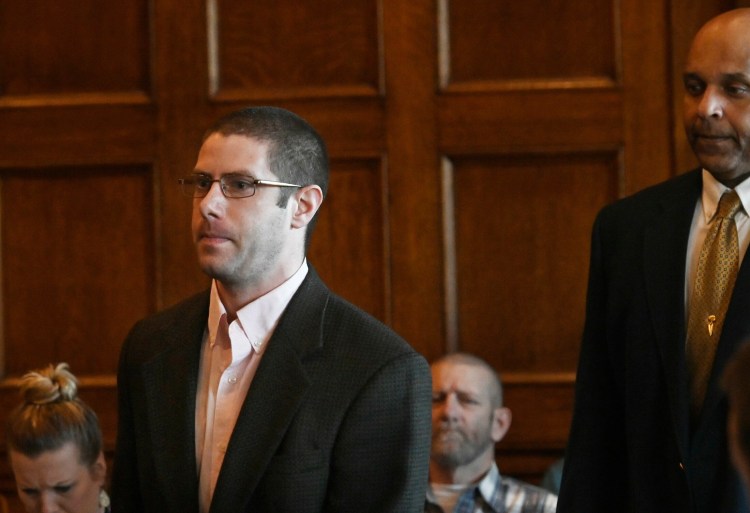The defense has delayed closing arguments in the murder trial for a man accused of shooting and killing a Somerset County sheriff’s deputy last year.

Cpl. Eugene Cole
Officials said jurors were told to return to the Cumberland County Courthouse on Tuesday. The courtroom was empty Monday at the time the sixth day of the trial was scheduled to begin.
Defense attorney Verne Paradie said he is deciding whether to call an expert witness who would counter the state’s reconstruction of the shooting that killed Cpl. Eugene Cole. Paradie did not name that person but said he would not be available to testify until Tuesday.
“This discussion has been happening over the weekend,” Paradie said in a phone call Monday morning.
A spokesman for the Maine Attorney General’s Office confirmed the delay but said he had no comment on its cause.
Cole, 61, was the first Maine police officer fatally shot in the line of duty in three decades. John D. Williams, now 30, has admitted that he killed Cole in Norridgewock in the early hours of April 25, 2018. But he has pleaded not guilty to murder.
The state has said Williams intended or at least knew he would kill Cole when he pulled the trigger that night, which is a key element to the murder charge. Prosecutors have presented forensic evidence and expert testimony to show Williams shot Cole at very close range.
The defense has argued Williams was too impaired by his drug use to form that state of mind. His attorneys will ask the jury to consider a lesser but included offense of manslaughter, which would mean he acted negligently or recklessly to cause Cole’s death.
The possible sentence for murder is 25 years to life, while manslaughter is capped at 30 years.
The state called more than 20 witnesses last week. One was Larry Morrill, a former Bangor police officer and an associate member of the Maine State Police evidence response team. Morrill told the jury Thursday that he used evidence such as blood splatter, lead residue and grass stains on Cole’s uniform to reconstruct the fatal shooting.
He said Cole was on the ground and trying to get up when Williams put the gun to the right side of his neck and fired. The sheriff’s deputy was either still on his knees or crouched low at the time, Morrill said. His testimony included a computer simulation of Cole’s position, but he also reenacted his theory in front of the jury.
That demonstration was one of the most dramatic and contested moments so far in the trial. Morrill acted as the gunman, while a state trooper took Cole’s place. The trooper tried to get up from the floor of the courtroom, but Morrill came up behind him and put his finger like a gun up to the man’s neck.
The defense tried to bar Morrill from testifying, or at least from presenting the reenactment. The judge allowed both, but he also let defense attorney Patrick Nickerson record the reenactment on his cellphone camera, a video that could be used in the event of an appeal. And while Morrill was on the witness stand, Paradie tried to discredit the state’s theory of an execution-style killing.
Morrill admitted he could not be certain the fired bullet and cartridge casing were not disturbed in the hours between the shooting and their discovery. But he said his conclusions would not have changed dramatically if their locations were slightly different, and he told Paradie that the blood splatter evidence refuted any other position for the gunman.
“He has to have been behind him?” Paradie asked.
“Yes,” Morrill said.
Paradie said he had not decided whether that witness will testify as of Monday morning. Either way, closing arguments are expected Tuesday. Williams himself told the judge Friday that he would not take the stand.
Comments are not available on this story.
Send questions/comments to the editors.



